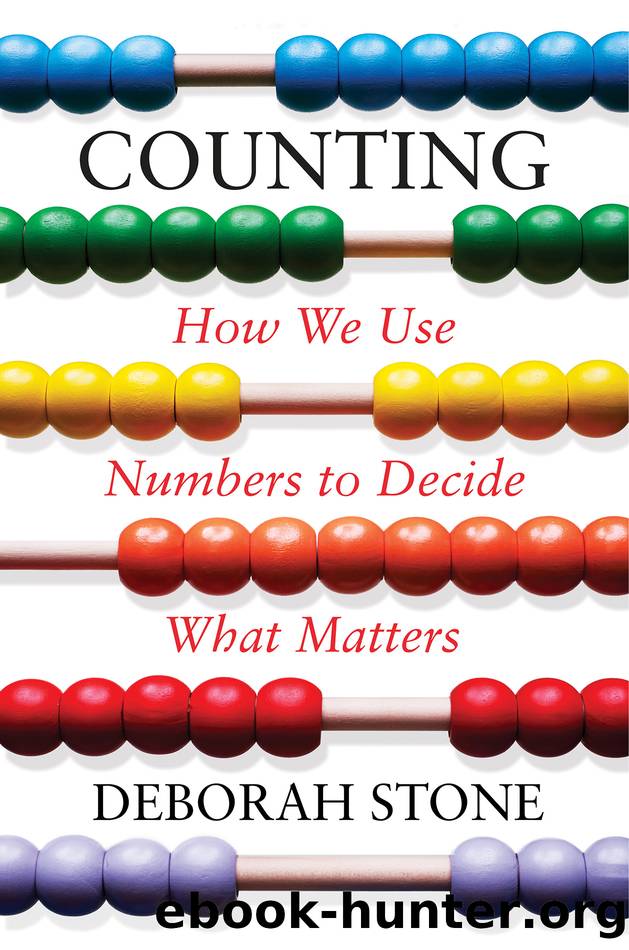Counting by Unknown

Author:Unknown
Language: eng
Format: epub
Tags: Epub3
Publisher: Liveright
Youâll be well into the interview before these questions about race come up and they might catch you by surprise. But donât worry. The survey is an equal-opportunity bigot. It asks you to rate whites, Asian Americans, and Hispanics on the same scales. It also asks you to rate Muslims and Christians as âpatrioticâ or âunpatrioticâ on a scale from 1 to 7. And get this: the question about whether black and white candidates are equally suited for political office was asked for the first time in 2008âthe first year Barack Obama ran for president.
I didnât make up these questions. I drew them from the American National Election Studies (ANES), because those studies are among the premier surveys on Americansâ political views. The surveys are designed by top social scientists, mostly from the University of Michigan and Stanford University, and they receive support from the National Science Foundation. They are conducted every two years before and after each presidential and mid-term election. And the ANES uses what most social scientists consider the best methods for identifying group stereotypes and tracking racism and prejudice.
These questions invite respondents to generalize about entire groups based on skin colorânot even skin color, really, but a word that supposedly describes skin color and a whole lot more. By asking questions laden with racial stereotypes, researchers put out the message that races are real things rather than amorphous human ideas about grouping people. The questions teach that generalizing about a group defined by a color word, a nationality, or an ethnic label is an acceptable way to think. Moreover, the questions about work ethic, violence, and intelligence perpetuate derogatory images of blacks that white Americans and Europeans have used to justify slavery and discrimination for centuries. If the questions were parents, Iâd tell them theyâre modeling bad behavior to their children.
The next three questions invite stereotyping in a less obvious way.
I will read some statements. After each one, please tell me whether you agree strongly, agree somewhat, neither agree nor disagree, disagree somewhat, or disagree strongly.
Irish, Italians, Jews and many other minorities overcame prejudice and worked their way up. Blacks should do the same without any special favors.
Over the past years, blacks have gotten less than they deserve.
Itâs really a matter of some people not trying hard enough; if blacks would only try harder they could be just as well off as whites.
Download
This site does not store any files on its server. We only index and link to content provided by other sites. Please contact the content providers to delete copyright contents if any and email us, we'll remove relevant links or contents immediately.
Professional Troublemaker by Luvvie Ajayi Jones(29631)
Whiskey Words & a Shovel I by r.h. Sin(19350)
Rewire Your Anxious Brain by Catherine M. Pittman(18604)
Healthy Aging For Dummies by Brent Agin & Sharon Perkins RN(17024)
Cat's cradle by Kurt Vonnegut(15277)
Talking to Strangers by Malcolm Gladwell(13319)
The Art of Thinking Clearly by Rolf Dobelli(10355)
They Both Die at the End by Adam Silvera(9784)
The 5 Love Languages: The Secret to Love That Lasts by Gary Chapman(9734)
Doing It: Let's Talk About Sex... by Hannah Witton(9257)
The Compound Effect by Darren Hardy(8892)
Thirteen Reasons Why by Jay Asher(8860)
Goodbye, Things by Fumio Sasaki(8543)
Wonder by R.J. Palacio(8538)
Tools of Titans by Timothy Ferriss(8331)
Atomic Habits: Tiny Changes, Remarkable Results by James Clear(8276)
Becoming Supernatural by Dr. Joe Dispenza(8174)
Wonder by R. J. Palacio(8074)
Change Your Questions, Change Your Life by Marilee Adams(7701)
